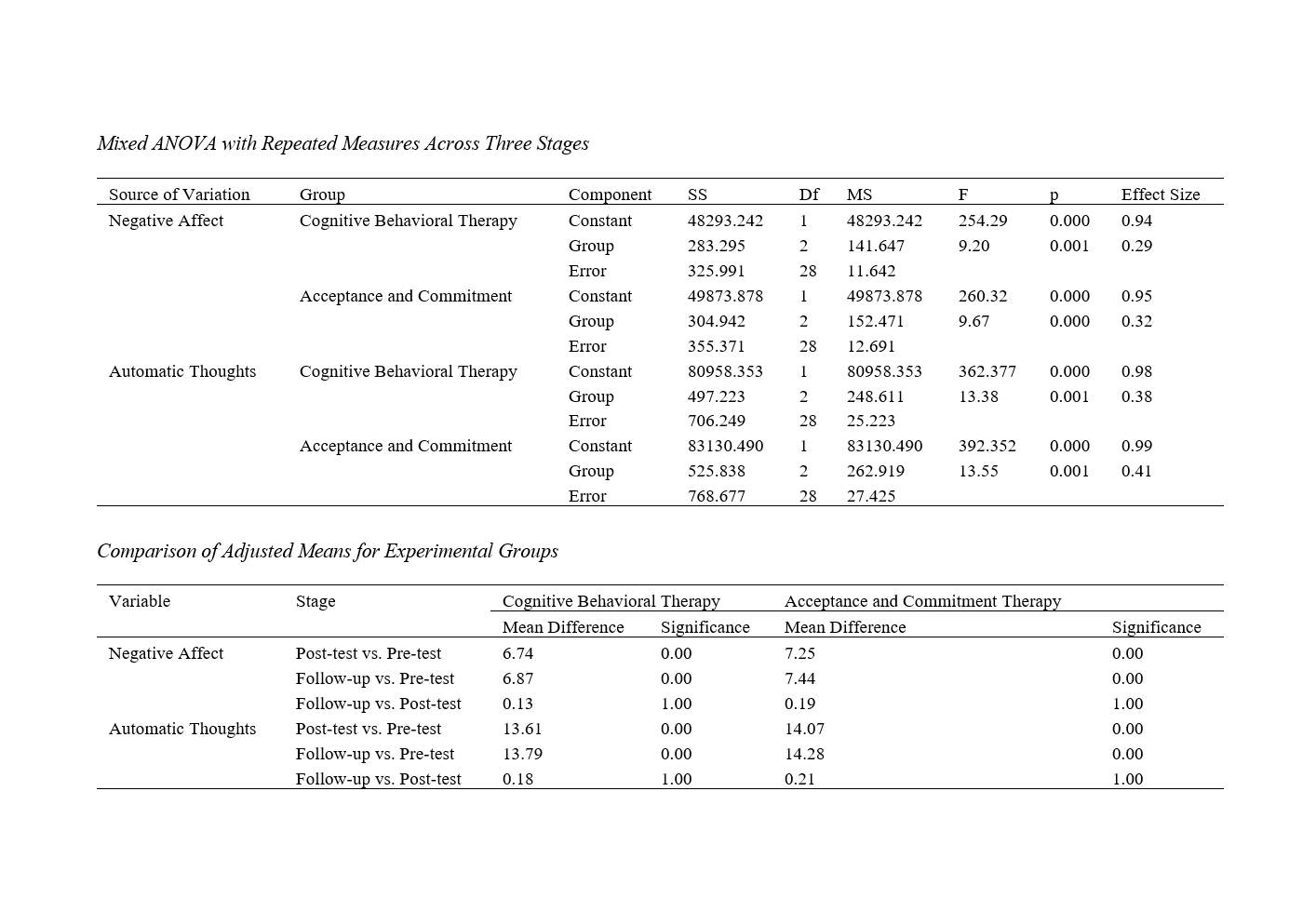Comparison of Cognitive Behavioral Therapy and Acceptance and Commitment Therapy on Negative Automatic Thoughts and Negative Affect in Depressed Women
Keywords:
Cognitive Behavioral Therapy, Acceptance and Commitment Therapy, Negative Affect, Negative Automatic Thoughts, Depressed WomenAbstract
Objective: The purpose of this study was to compare the effects of Cognitive Behavioral Therapy (CBT) and Acceptance and Commitment Therapy (ACT) on negative automatic thoughts and negative affect in depressed women.
Methods: The design of this study was applied and quasi-experimental, featuring pre-test and post-test stages with two experimental groups and one control group, followed by a two-month follow-up period. The study population included all women diagnosed with depression who visited a private counseling center in Tehran in 2023. A convenience sample of 30 participants was randomly assigned equally to the two experimental groups and one control group. The Watson and Tellegen (1985) Positive and Negative Affect Schedule (PANAS) and the Hollon and Kendall (1980) Automatic Thoughts Questionnaire (ATQ) were used for data collection. Data were analyzed using SPSS-26 software, applying three-way repeated measures analysis of variance (ANOVA) and Bonferroni post hoc tests.
Findings: Results indicate significant differences between pre-test and post-test scores for both therapies in terms of negative affect and negative automatic thoughts (p < .01), demonstrating the significant efficacy of both treatment modalities. No significant differences were found between post-test and follow-up scores (p > .05). Analysis using the Bonferroni test shows no significant difference in the efficacy of the two approaches on problem-solving components (p > .05).
Conclusion: Based on the findings, it can be concluded that both Cognitive Behavioral Therapy and Acceptance and Commitment Therapy are effective in reducing negative affect and negative automatic thoughts in depressed women, with no significant difference in the effectiveness of these therapeutic approaches.
Downloads

Downloads
Additional Files
Published
Issue
Section
License

This work is licensed under a Creative Commons Attribution-NonCommercial 4.0 International License.





















